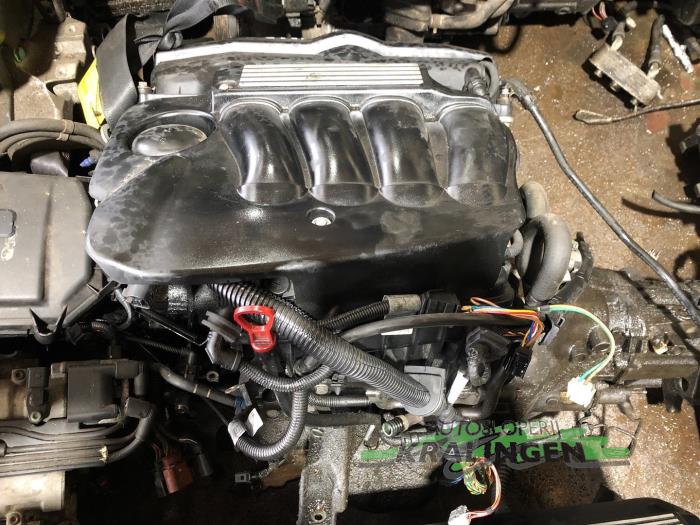Preserving Your BMW 318ti: Vital Tips for Longevity
Preserving Your BMW 318ti: Vital Tips for Longevity
Blog Article
Vital Factors To Consider for Picking the most effective Engine for Your Requirements
In the realm of selecting the excellent engine to satisfy your requirements, a number of crucial variables need precise factor to consider to guarantee ideal efficiency and efficiency. From the nuanced balance between power and efficiency to the often-overlooked elements of maintenance and solution requirements, each facet plays a critical role in identifying the most ideal engine for your details requirements.
Power and Efficiency
When assessing engines for ideal performance, it is important to prioritize both power result and performance. Power output gauges the capability of an engine to produce energy, which directly impacts its efficiency. A high power output is essential for requiring tasks such as high-speed requirements or heavy-duty applications. It guarantees that the engine can manage the work efficiently and effectively. However, power alone is not sufficient; performance plays a substantial function in determining the general efficiency of an engine. Performance refers to exactly how well the engine converts gas into useful power. A more effective engine will supply far better gas mileage, lower emissions, and reduced operating expense. Striking the right balance in between power outcome and effectiveness is crucial to selecting an engine that fulfills your specific demands. When making this choice, it is important to consider aspects such as the meant use of the engine, ecological effect, and long-term price effects. By thoroughly reviewing both power and efficiency, you can pick an engine that delivers ideal performance and meets your requirements efficiently.
Gas Effectiveness and Economy
Fuel effectiveness refers to the engine's capacity to transform fuel into energy with marginal waste, directly affecting operating costs and environmental sustainability. Engines with higher gas efficiency not just decrease fuel expenses but also lower carbon discharges, adding to a greener procedure.

Compatibility and Application
Thinking about the fuel effectiveness and economic climate of an engine, the following essential facet to address is its compatibility and application within particular operational contexts. Compatibility refers to just how well the engine incorporates with the general system or equipment it powers.
Different engines are developed for details objectives, whether it be industrial machinery, marine vessels, automobiles, or power generators. Understanding the intended application enables for the option of an engine that can provide the needed power output, torque, and functional characteristics.
Maintenance and Service Demands
Maintenance and solution needs play an essential role in making sure the longevity and Web Site optimal performance of an engine. Normal upkeep is necessary to prevent breakdowns, expand the life expectancy of the engine, and maintain its effectiveness. When picking an engine, it is essential to think about the manufacturer's advised upkeep timetable and the accessibility of solution centers or certified service technicians.
Aspects such as the regularity of oil adjustments, filter substitutes, and total assessments can dramatically impact the engine's efficiency. Some engines might need even more frequent servicing based on their design and use, while others may have longer periods between upkeep checks. It is crucial to abide by these service requirements to prevent expensive repair work and unforeseen downtime.

Cost and Budget Plan Factors To Consider
When picking an engine for a particular application,Budget constraints often play a significant duty in the decision-making procedure. When considering the price and budget plan implications of selecting an engine, it is necessary to examine not just the initial acquisition cost but also the long-lasting costs connected with maintenance, gas intake, and potential upgrades or repair work. It is crucial to strike an equilibrium between the upfront expense of the engine and its general lifecycle expenses to guarantee that the selected engine stays financially lasting throughout its functional life expectancy.
Aspects such as fuel performance, reliability, and toughness can straight impact the complete expense of ownership of an engine. While an extra pricey engine might have higher ahead of time prices, it could potentially lead to lower upkeep and gas expenditures with time, hence using better value over time. In addition, thinking about the availability and price of spare useful content parts, as well as the convenience of upkeep and solution, can aid prevent unanticipated financial strain in the future. By thoroughly examining these price and budget factors to consider, you can make an informed decision that aligns with your economic restraints and operational needs.
Final Thought

Fuel effectiveness refers to the engine's capability to transform fuel right into power with very little waste, directly impacting operating prices and environmental sustainability.Variables affecting fuel effectiveness include engine style, burning performance, and overall efficiency optimization. Additionally, picking the proper gas kind and quality as suggested by the engine supplier can even more enhance effectiveness and extend engine lifespan.
Engines with great serviceability functions and conveniently available parts can lower maintenance prices and minimize the time the engine is out of operation - bmw 318ti. It is crucial to strike an equilibrium in between the ahead of time cost of the engine and its overall lifecycle prices to guarantee that the chosen engine stays economically sustainable throughout its functional life-span
Report this page